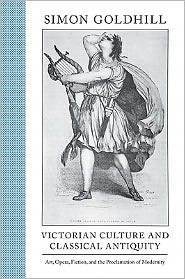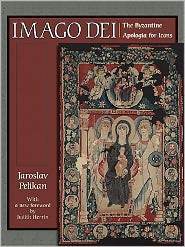Reading, Lately
I’ve been taking notes on Pliny–the Pliny Train is still going, but doing posts every few pages, while fun for me, is a massive time investment and quite probably boring to everyone else. So I’m thinking about a different structure for those posts. More of an overview than a detailed reading.
 In other reading news, I’ve finished Victorian Culture and Classical Antiquity. It was a fun read, in a crunchy cross-discipline way. Goldhill got a little unreadable when it focused on novels–a lit-critter he is definitely not–but the paintings and opera sections were just what I like: analysis, making connections, pointing out that a classical education wasn’t just education, it was also a passport into higher society and a ticket to a certain form of social mobility. It made me think very deeply about my own pursuit of what one might call a classical education, and the reasons why I do it, including cultural reasons that might not be immediately apparent to me. Culture is like Palmolive–you’re soaking in it, Madge.
In other reading news, I’ve finished Victorian Culture and Classical Antiquity. It was a fun read, in a crunchy cross-discipline way. Goldhill got a little unreadable when it focused on novels–a lit-critter he is definitely not–but the paintings and opera sections were just what I like: analysis, making connections, pointing out that a classical education wasn’t just education, it was also a passport into higher society and a ticket to a certain form of social mobility. It made me think very deeply about my own pursuit of what one might call a classical education, and the reasons why I do it, including cultural reasons that might not be immediately apparent to me. Culture is like Palmolive–you’re soaking in it, Madge.
I could have been happy with the “novels” section of the book given over to more exploration of opera, or more of the Pre-Raphaelites. I would have really loved to see Salome or Cleopatra get the same attention as Sappho and Mariamne, frex. Also, Goldhill on Wagner’s anti-Semitism is a fascinating chapter, and handled, I think, very well.
 I’ve also finished Imago Dei. Based on a series of A. W. Mellon lectures Jaroslav Pelikan gave about Byzantine iconoclast and iconodule arguments–they were originally on a very fine tapestry icon–this is a really good introduction to the issues around the whole icon controversy in the early Church and, by extension, about some of the basic theological differences between Eastern and Western Christianity. Pelikan has a way of distilling and translating complex theological stunts and battles into understandable terms, and now I want to pick up some of his other history works. Granted, I feel about theology the same way I feel about sports–it’s all imaginary point-scoring that people riot and kill for when they could be making art or improving everyone’s quality of life instead–but still, to understand different historical periods it’s necessary to try to comprehend what people fought over and cared about.
I’ve also finished Imago Dei. Based on a series of A. W. Mellon lectures Jaroslav Pelikan gave about Byzantine iconoclast and iconodule arguments–they were originally on a very fine tapestry icon–this is a really good introduction to the issues around the whole icon controversy in the early Church and, by extension, about some of the basic theological differences between Eastern and Western Christianity. Pelikan has a way of distilling and translating complex theological stunts and battles into understandable terms, and now I want to pick up some of his other history works. Granted, I feel about theology the same way I feel about sports–it’s all imaginary point-scoring that people riot and kill for when they could be making art or improving everyone’s quality of life instead–but still, to understand different historical periods it’s necessary to try to comprehend what people fought over and cared about.
One of the things I had never delved into before was the Eastern Orthodox chain of logic and belief around Marianism. It led me down some interesting mental roads, not the least of which was imagining myself a Byzantine semi-Hypatia, arguing that the true reflection of God was the woman who gave birth and then had to watch her child die as a result of stubbornness and bureaucratic idiocy. (Yeah, I would have been torn apart by a mob, too. Sigh.) I’ve been interested in Byzantium ever since I read Norwich’s excellent Short History of Byzantium–I liked it so much I went back and got the three-volume expanded work. (The first one’s here, if you’re interested.) It’s a natural extension of my interest in Rome. Norwich and Pelikan both have a very clear, patient style–one mark of understanding a subject thoroughly is being able to clearly explain bits of it to laymen, I think, and I find them both well worth the effort of reading and note-taking.
I’m still slogging through Braudel and also reading In The Fire of the Eastern Front as a part of my ongoing study of that WWII theater. It’s…interesting to see what the writer chooses to put down as justification for the war, and pretty intense practice in just reading for information while being sickened by what I know is occurring in the background of this one person’s story. Every once in a while, it’s good to read things one disagrees with, just to keep oneself flexible and open, not to mention compassionate.
So. What are you guys reading?



